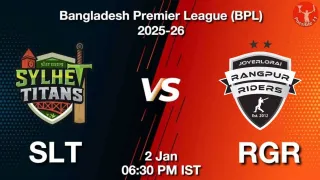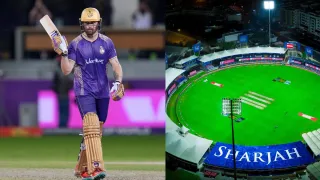India's Gaming: From Fantasy Cricket to Crash Games

From traditional card games celebrated during Diwali to a multi-billion dollar sector changing leisure and social interactions across the subcontinent, India's gaming industry has grown exponentially in recent years.
A New Entertainment Paradigm
Millions of people have become aware of a new phenomena in India's busy digital scene: crash games like Aviator Game, in which players watch a virtual jet fly higher and higher until they pay out—that is, lose everything if they wait too long. This new tendency reflects just one aspect of "quick win" models including color prediction games, coin flips, and crash games. These forms appeal to a particularly Indian need for micro-entertainment, short, interesting events appropriate for the spare times of daily living. The psychology of their appeal reveals a lot about modern Indian society: the need for fast payoffs, the excitement of risk, and the social component of a shared game experience.
Evolution of Gaming in India
Deep cultural roots of the gaming boom in India go far beyond the basic story of technical acceptance. The global gaming industry has taken a very clear path, from arcades to computers to mobile games. India's road has been shaped by its unique culture and social conditions. KPMG claims that the online social game market in India will grow the most, with sales rising 182% from INR 60 billion ($808 million) this year to INR 169 billion ($2.28 billion).
In contrast to the West, which started with computer games, India went straight to mobile games, skipping the time when expensive gaming gear was needed. This big step changed how Indians thought about and played games in a fundamental way, not just how easy they were to play. Fantasy cricket platforms are popular for more than just sports fans. They're also popular for creating a uniquely Indian game experience that combines skill, strategy, and cultural dedication.
The Fantasy Sports Phenomenon
The emergence of fantasy sports in India offers a strange conundrum. Although cricket is still the national pulse, fantasy gaming has turned docile onlookers into active players interacting with the game at a more intellectual level. This change has produced a new class of sports fans who research team dynamics, player stats, and pitch conditions with an intensity matched to that of professional analysts. The fantasy sports sector has gamified cricket expertise thereby transforming what was previously casual interest into a skill-based hobby.
Indian Gaming: The Social Fabric
One should pay especially attention to the social aspect of Indian gaming. While Western gaming mostly stresses personal accomplishment or team competitiveness, Indian gaming systems have effectively included societal hierarchies and familial dynamics into their architecture. Features in many well-known games let players create "families" or "guilds" with leadership systems that reflect conventional social structures. This adaption of gaming techniques to cultural standards has allowed gaming to be accepted across social levels and age groups.
Regulatory Difficulties
Another level of intricacy is the regulatory scene around Indian gambling. Games of skill and games of chance differ in ways that have resulted in a patchwork of state-level rules that gaming businesses must negotiate. Game designers have been inspired by this regulatory environment and have created hybrid forms stressing skill components while preserving the interesting simplicity of chance-based games. All India Gaming Federation claims that this complexity of regulations has actually driven industry technical innovation.
Money Making
The ways Indian gambling businesses monetize show a deep awareness of local economic reality. Although Western games often depend on premium pricing or large in-app purchases, Indian developers have perfected the art of micro-transactions; some platforms have stakes as little as one rupee. This strategy has democratized gaming involvement and produced sustainable income sources fit for India's economic situation.
Technical Base
The technical base underpinning India's gaming explosion offers both possibilities and problems. The diverse internet connection rates in the nation have driven creators of adaptive games able to operate across many network circumstances to emerge. This technological restriction has spurred creativity in game design; several well-known games include low-data alternatives or offline modes that guarantee accessibility across India's varied digital terrain.
Gaming as a Teaching Tool
Gaming influences Indian culture in ways other than just amusement. Through their interaction with fantasy sports and other skill-based games, gaming platforms have evolved unexpectedly into vehicles for financial literacy, educating millions about ideas such as investment risk, portfolio management, and probability. Though accidental, this educational component of the gaming explosion shows a major beneficial externality.
Regional Inclusion
One should especially consider the part regional languages play in Indian gaming. Through thorough language translation, gaming platforms have effectively entered Tier 2 and Tier 3 cities unlike many other digital sectors that mostly run in English. This language inclusiveness has enabled a really pan-Indian gaming community across conventional urban-rural boundaries.
Future Patterns
Future developments in Indian gaming seem to go towards ever more complex experiences combining entertainment value with utility. Growing interest in blockchain-based games, the addition of augmented reality components in traditional Indian games, and the creation of educational gaming platforms point to the industry's far from whole potential.
The Ecosystem of Entrepreneurship
The Indian entrepreneurial environment around gaming has also changed dramatically. From a small group of fantasy sports businesses, what started out as one has evolved into a varied field of gaming enterprises, each carving their own niche. From firms creating sophisticated multiplayer experiences to those emphasizing simple mobile games, the range of gaming startups illustrates the maturity and promise of the business.
Cultural Export
Indian gaming has an impact beyond national boundaries. While keeping clearly Indian aspects, Indian creators are producing more and more games appealing to worldwide audiences. Through gaming, India can transmit its rich cultural legacy via an interactive media, therefore representing a new kind of soft power.
Ethical Gaming
In the Indian context, the link between gaming and mental health offers both possibilities and difficulties. Although worries about gaming addiction still exist, several platforms now provide responsible gaming tools to encourage sensible involvement. There are even game designers who want to use ancient Indian health methods to make games that are supposed to reduce stress and promote calm.
Challenges To Come
India's game business is changing, which brings up a lot of important problems. It's critical to consider how to strike a balance between new ideas and adhering to the rules, how to make gaming environments safe and welcome for everybody, and how difficult it is to keep moving forward while maintaining responsible gaming. However, these issues provide opportunities for the industry to expand and create world-class standards.
To Sum Up
Finally, Indian gaming isn't just about fun or technology; it's also about how a culture adapts to and changes global trends to make something its own. The company has been very creative in meeting local needs while still making world-class gaming experiences. For example, they have added cultural elements to games and come up with ways to make money that are specific to India.
India's game industry is at an interesting crossroads right now. As more people get smartphones, internet speeds improve, and young people are ready for new types of fun, the business will continue to grow and change. The main question is not whether India will become a gaming giant, but how its unique ideas and inventions will change gaming around the world in the future.
Disclaimer
The content provided on this website is for informational and educational purposes only. We do not promote, endorse, or encourage any form of illegal betting or gambling. Readers are advised to check the legal status of betting and gambling in their respective jurisdictions before engaging in any activities. It may be legal in certain regions, but it is the your responsibility to ensure compliance with local laws. We are not liable for any legal or financial consequences arising from the use of this information.












Give Your Feedback